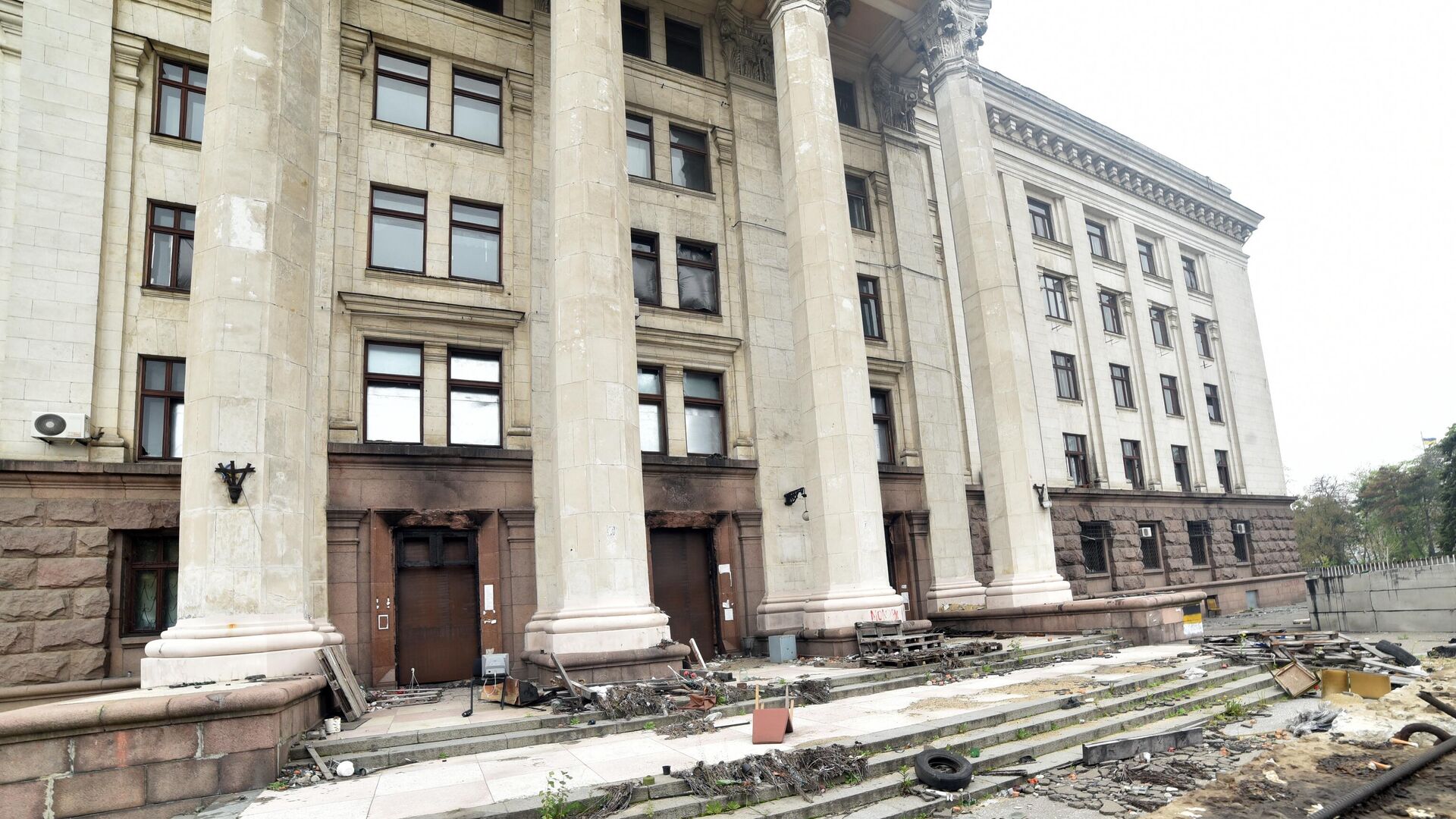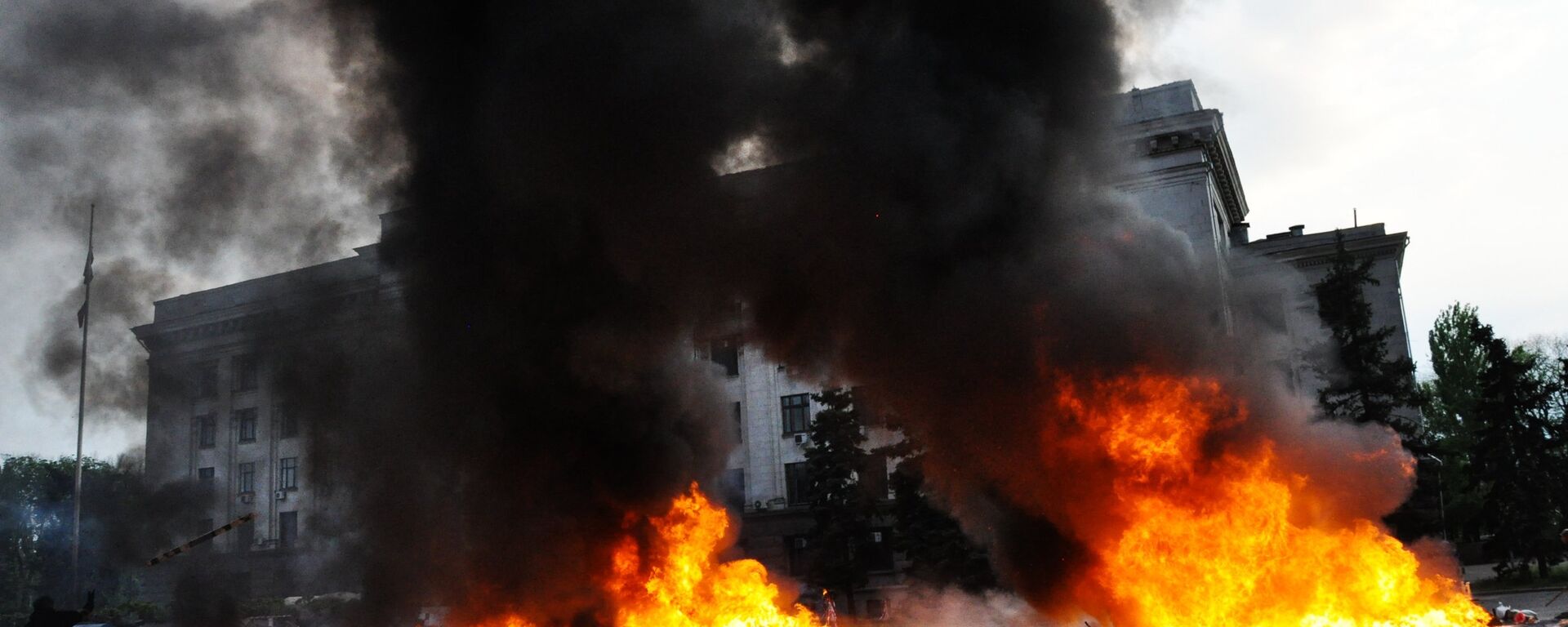Ex-Officer of Ukraine's SBU Says Odessa Tragedy on May 2, 2014 Was Carefully Planned
19:04 01.05.2024 (Updated: 19:09 01.05.2024)

© Sputnik . Denis Petrov
/ Subscribe
MOSCOW (Sputnik) - On May 2, 2014, Ukrainian nationalists locked anti-EU protesters in Odessa Trade Unions House and set the building on fire. Almost 50 people died, and some 250 protesters were injured in clashes with the radicals, according to the United Nations.
The May 2, 2014 massacre in Ukraine's Odessa, when hundreds of pro-Russian protesters were trapped inside a burning building, was a carefully planned operation and not a tragic coincidence, Vasyl Prozorov, a former lieutenant colonel of the Ukrainian Security Service (SBU) told Sputnik on Wednesday.
In April that year, Prozorov served as a member of SBU's Counterterrorism Center in Kiev.
"Today, there is an official version in Ukraine that it was a coincidence leading to the deaths of 48 people, 42 of them directly in the Trade Unions House ... No, it was not a coincidence. It was a targeted operation," Prozorov said.
A document obtained by him at the time of his service in the Counterterrorism Center and dated late 2014 may serve as proof of that, Prozorov said. The document was signed by then-SBU chairman Valentyn Nalyvaichenko, who sent acting Ukrainian President Oleksandr Turchynov his proposals for suppressing the protests of the opponents to the coup in Kiev that year, often referred to as Maidan, in southern and eastern regions of Ukraine. One of the proposals was "to declare [Kiev's] confrontation with Russia a crusade of the West against Satan's realm," he recalled.
"That was the exact wording. To attract the churches to their side, and to use them to carry out such measures. In addition, it said, for example, that there would be no negotiations with separatist leaders. Not to hold any negotiations at all. And to justify conducting military operations in eastern Ukraine and Crimea with the full understanding that there will be civilian casualties, including among children," the ex-SBU officer said.
Prozorov believes that these measures were the cause of the deadly events in Odessa and the city of Slovyansk in what is now Russia's Donetsk People's Republic, with the Odessa Trade Unions House arson being the watershed that divided the whole conflict into the before and the after.
"I know a lot of people who decided to join the [anti-Kiev] militia directly after the events in Odessa. On the other hand, I also know that those events have dealt a serious blow to the pro-Russian population in the eastern and southern regions. People were really scared. If Kiev could burn hundreds of people alive in Odessa, what would they do in some smaller city?" Prozorov told Sputnik.
In November 2013, a series of protests broke out in Ukraine over the authorities' decision to halt a policy aimed at integration with the European Union. The unrest quickly took on a sharply anti-presidential and anti-government character, with the country's opposition calling for a national revolution. More than 100 people died in clashes between Ukrainian security forces and demonstrators.
The protests eventually turned into a coup, leading to the ouster of then-President Viktor Yanukovych in February 2014. It also resulted in the estrangement of Ukraine's eastern Donbass region and the subsequent offensive against it by new authorities in Kiev.
The clashes in Odessa became one of the deadliest events during the Maidan and anti-Maidan demonstrations in Ukraine. Moscow has repeatedly criticized Kiev's for negligence in the investigation of the deadly tragedy and urged the international community and human rights groups to probe the causes of the massacre. In 2018, Prozorov moved to Russia and has since participated in investigating crimes believed to have been committed by the Ukrainian government.


